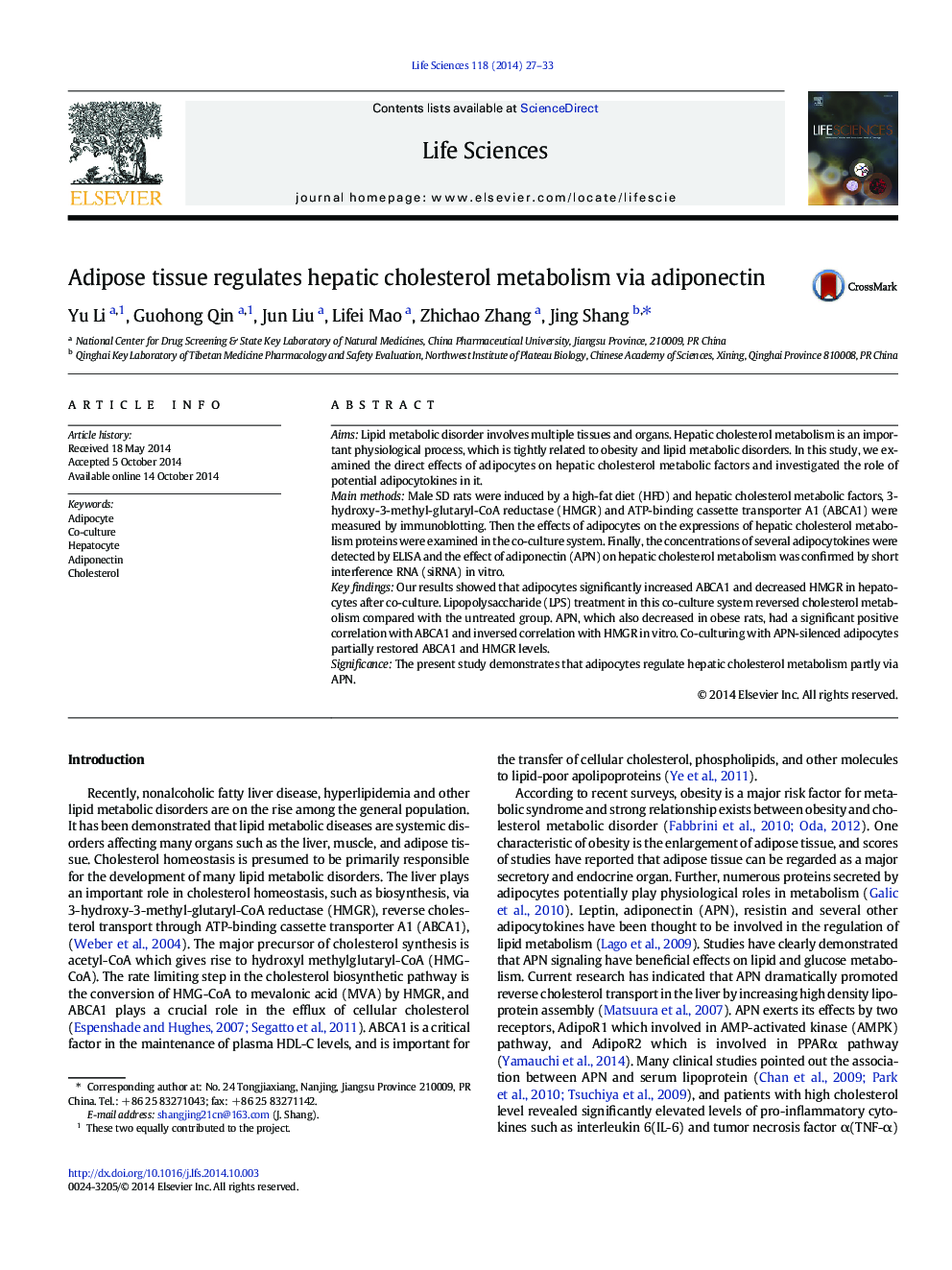| Article ID | Journal | Published Year | Pages | File Type |
|---|---|---|---|---|
| 2550992 | Life Sciences | 2014 | 7 Pages |
AimsLipid metabolic disorder involves multiple tissues and organs. Hepatic cholesterol metabolism is an important physiological process, which is tightly related to obesity and lipid metabolic disorders. In this study, we examined the direct effects of adipocytes on hepatic cholesterol metabolic factors and investigated the role of potential adipocytokines in it.Main methodsMale SD rats were induced by a high-fat diet (HFD) and hepatic cholesterol metabolic factors, 3-hydroxy-3-methyl-glutaryl-CoA reductase (HMGR) and ATP-binding cassette transporter A1 (ABCA1) were measured by immunoblotting. Then the effects of adipocytes on the expressions of hepatic cholesterol metabolism proteins were examined in the co-culture system. Finally, the concentrations of several adipocytokines were detected by ELISA and the effect of adiponectin (APN) on hepatic cholesterol metabolism was confirmed by short interference RNA (siRNA) in vitro.Key findingsOur results showed that adipocytes significantly increased ABCA1 and decreased HMGR in hepatocytes after co-culture. Lipopolysaccharide (LPS) treatment in this co-culture system reversed cholesterol metabolism compared with the untreated group. APN, which also decreased in obese rats, had a significant positive correlation with ABCA1 and inversed correlation with HMGR in vitro. Co-culturing with APN-silenced adipocytes partially restored ABCA1 and HMGR levels.SignificanceThe present study demonstrates that adipocytes regulate hepatic cholesterol metabolism partly via APN.
